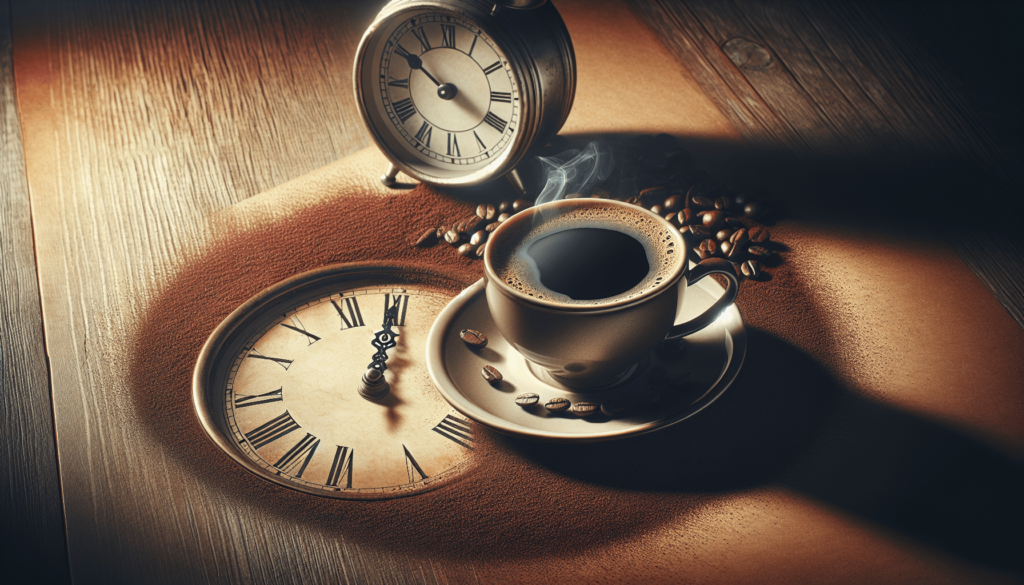Have you ever found yourself staring at a cup of coffee that has been sitting out for a day, pondering whether it’s safe to drink? It’s a common scenario—you make a pot of coffee, get distracted, and then find the pot still half-full the next day. The temptation to reheat and sip that coffee is strong, but is it really okay to drink day-old coffee?
Understanding Coffee Staling
What Happens to Coffee Over Time?
When coffee is left to sit, several changes occur. The oils in the coffee begin to go rancid, the flavor compounds deteriorate, and the coffee becomes more acidic. Additionally, exposure to air leads to oxidation, which further affects the taste and quality of the brew.
The Science Behind Coffee Deterioration
The main reason behind the changes in coffee over time is oxidation. Oxygen reacts with the compounds in coffee, causing them to break down. This process starts as soon as the coffee is brewed, and while it won’t make the coffee harmful to drink within a short period, it does impact the taste and aroma significantly.
Flavor Compounds Breakdown
Phenolic compounds, which contribute to the coffee’s aroma and flavor, degrade over time. This breakdown results in a less aromatic and more bitter-tasting cup of coffee. The loss of volatile compounds means that the coffee loses its freshness and complexity.
Health Concerns
Can Day Old Coffee Make You Sick?
In most cases, drinking day-old coffee won’t make you sick, but it’s not without its risks. Coffee left out in the open can accumulate bacteria and mold, especially if it contains milk or sugar. While black coffee that’s been left out for 24 hours is less likely to harbor harmful bacteria, it’s still not recommended to consume it regularly.
The Role of Milk and Sugar
If you’ve added milk or sugar to your coffee, it becomes a more welcoming environment for bacteria. Dairy products and sugary mixtures can spoil quickly if left at room temperature, making the coffee unsafe to drink.
Food Safety Guidelines
According to food safety guidelines, perishable foods, such as those containing dairy, should not be left at room temperature for more than two hours. Applying this guideline to coffee, it’s wise to err on the side of caution when considering whether to drink a day-old, milky brew.

Taste and Quality
How Does Day Old Coffee Taste?
Most coffee enthusiasts agree that the taste of day-old coffee is less than ideal. As coffee sits, its flavor profile becomes flat and stale. The nuanced flavors you enjoyed when the coffee was fresh are either muted or completely gone.
Temperature Changes and Taste
Repeatedly reheating coffee further degrades its quality. The heat causes more of the volatile compounds that give coffee its distinct flavor to evaporate, leaving behind a bitter and less enjoyable beverage.
Ways to Improve Taste
If you must drink day-old coffee, there are ways to slightly improve its taste. Adding ice and turning it into an iced coffee can make it more palatable. Another option is to add spices like cinnamon or nutmeg to mask the staleness.
Preserving Coffee Freshness
The Importance of Proper Storage
To maximize the freshness of your coffee, proper storage is key. Store coffee in an airtight container to reduce exposure to air and moisture, both of which can accelerate staling.
Ideal Storage Conditions
Keep your coffee in a cool, dark place. Avoid storing it in the refrigerator, as coffee can absorb odors from other foods, which can alter its taste.
Using Coffee Grounds Wisely
For those who brew coffee at home, use freshly ground beans rather than pre-ground coffee. Grinding your coffee just before brewing ensures the freshness and maximizes flavor.

Alternatives to Drinking Day Old Coffee
Repurpose Leftover Coffee
Instead of drinking old coffee, consider using it in different ways. Coffee ice cubes are an excellent idea. Freeze the leftover coffee in ice cube trays and use them in your iced coffee to prevent dilution.
Cooking and Baking with Coffee
Leftover coffee can also be used in various recipes. It adds a rich flavor to baked goods, marinades, and sauces. Try incorporating it into your chocolate cake recipes for a more intense flavor.
Composting Coffee Grounds
If you’re not keen on drinking or cooking with leftover coffee, the grounds can still be useful. Coffee grounds make excellent compost material due to their high nitrogen content. They can also be used for gardening, as they make a great addition to soil to improve its quality.
Making the Best Out of Your Coffee Routine
Brewing Smaller Amounts
One way to avoid the dilemma of day-old coffee is to brew smaller amounts that you can consume in one sitting. This not only keeps your coffee fresher but also reduces waste.
Investing in a Better Coffee Maker
Certain coffee makers have functions that help preserve the freshness of your brew. Investing in a machine with a thermal carafe, for instance, keeps your coffee hot without burning it, thereby maintaining its flavor for a longer period.
Enhancing Your Coffee Experience
Consider experimenting with different brewing methods. Techniques like pour-over or French press can bring out different flavor notes and might encourage you to enjoy your coffee fresh rather than leaving it out.
Conclusion
So, is it okay to drink day-old coffee? While drinking it won’t generally cause harm, it’s not the best option if you’re seeking a pleasant coffee experience. The flavor diminishes, and potential health risks, especially with added ingredients, make it less desirable. Instead, consider repurposing your leftover coffee or adjusting your routine to ensure you always have a fresh, enjoyable cup. By understanding the science behind coffee staling and taking steps to preserve your coffee’s freshness, you can make the most out of every brew.
Happy sipping!
